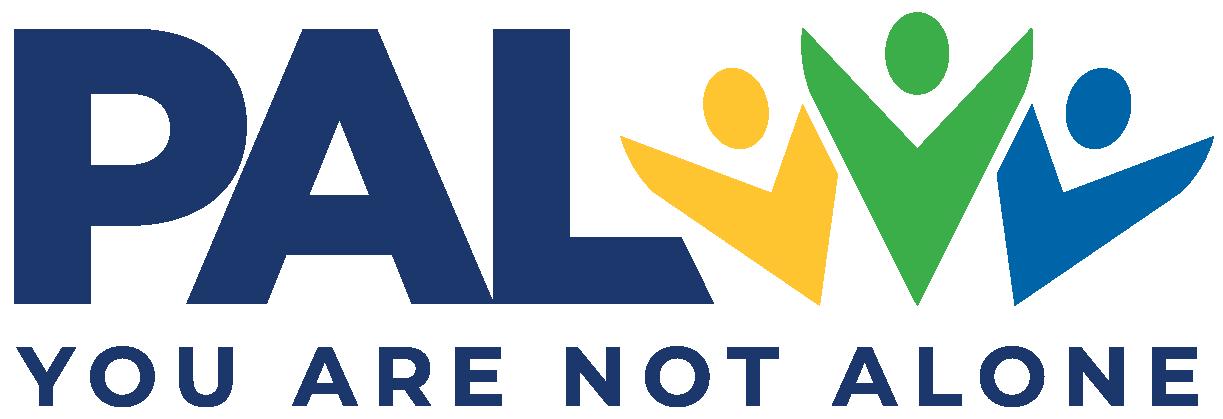
In PAL meetings we often talk about delayed emotional growth as well as delayed gratification. Our loved ones who are battling substance use disorder have tremendous difficulty with both of these behaviors. In the case of many of them, they began using substances at a very young age and behaviorally and emotionally became “stuck” at the age they began using.
But what about us? The co-dependent parents who have also been practicing our habits and behaviors for a very long time? A PAL parent recently asked me if I started to “get better” when my sons entered treatment. I told her that I actually started to recover quite a while before my sons did. She was very surprised and wanted to know more. I explained that just like my sons, I was fighting a battle that ran parallel to my sons use of substances. So many of us have the spotlight so firmly directed on our child that we fail to notice our own issues. I heard it said recently that before anyone can begin recovery, they must identify what they are “recovering” from? In my case, I had decided that my life, which I described to people as a “living hell” at the time, was just the way it was going to be as long as “they” were caught up in their disease. I had resolved to accept what I had learned from my own mother which is that I would only be as happy as my “unhappiest” child. In other words, I bought into a lie. Just like many of our loved ones buy into the lie that they will never recover.
So, after years of frustration and attempts at trying to control my sons, it was proposed that I swing the spotlight around, focus it on myself and see if I could do something about the one single thing I did have control over, myself. At first it seemed preposterous. How could I focus on myself when my sons were homeless? What good would that do? How could I be happy or go on a vacation with a son living in the bushes at a park? What if he “needed” me? What if he ended up in the hospital? Or, my greatest fear, what if one of them died and I’m off on vacation? What kind of mother would I be then? Does any of this resonate with you? I’ve heard most of these same concerns from other parents over the past years facilitating a PAL meeting. I then explained to my PAL friend the concept they talk about in AA called, “fake it until you make it.” First, I had to buy into the idea that the changes that I made in my own behaviors and habits might actually help my sons. Taking it even further, maybe, just maybe, the changes I made might be their salvation. Wow, that seemed like a long shot. And there was no guarantee. I had to agree that even though my sons stopped listening to me many years ago, I did still have some influence and was a role model. The phrase that really got me on board was, did I want them to see what a happy, healthy, balanced life looks like? Or did I want them to look at me and say, “Why would I want to grow up and be miserable like you?” Even worse, do I want them thinking they are responsible for my happiness?
All of these ideas began to sink in and take shape in my life as I surrounded myself with other parents going through similar issues. And I began to “fake it, until I made it.” My husband and I went on vacation but didn’t have any fun. We came home early and thought it was a waste of time. A few months later, we tried it again. We still didn’t have any fun but we didn’t come home early! The point I’m hoping to convey is that we kept doing what was suggested even when we didn’t “feel” like it. This is what we are hoping our loved ones ultimately do once they experience their breakthrough and begin their own journey into recovery. I believe this is the biggest challenge I see parents dealing with in our support group meetings. “Choosing” to do what is suggested even when it feels contrary to the way they have parented in the past. I consistently encourage them to stay the course, take small steps and incrementally make healthy changes.
Eventually, in my own journey the joy returned, even while I was waiting for them to have a breakthrough. I relinquished my sons of any burden related to feeling responsible for my happiness. I incrementally disentangled myself from the details of their lives and allowed them to “step into life” in whatever ways they chose. I worked on “accepting” the way they chose to live even though it did not flow with the way I chose to live my life. I believe so strongly in this program because I’m living proof that it can work! That is why after all of these years, I still invest my time and energy into facilitating and coaching parents because someone did the same for me.
Blessings,
M-
PAL Facilitator, Coach – Partnership to End Addiction and college certification in Addictions and Substance Use Disorders
Our regular counselor blogger Josh Acevedo is on break for the next three months, so we are bringing you perspectives from a PAL Facilitator.
